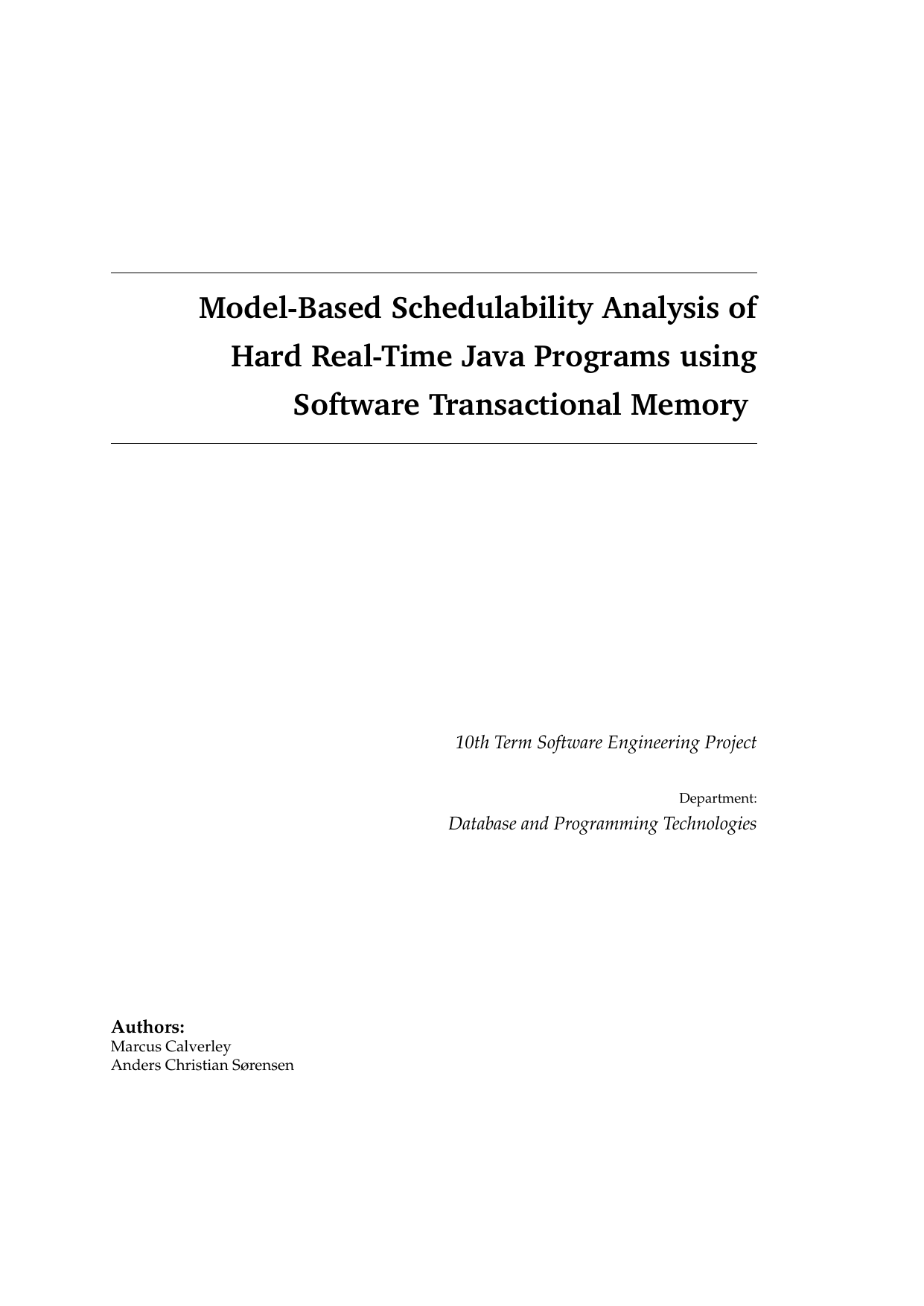
Model-Based Schedulability Analysis of Hard Real-Time Java Programs using Software Transactional Memory
Translated title
Authors
Term
4. term
Education
Publication year
2012
Submitted on
2012-06-11
Pages
92
Abstract
This report documents our work in developing a software transactional memory (STM) for real-time Java, which assigns priorities to transactions based on the tasks in which they execute. Contention is managed in such a way that the highest priority transaction does not experience retries, allowing for irreversible actions such as I/O, which is otherwise impossible using traditional STM. These properties are proven using the model checking tool UPPAAL. The Hardware-near Virtual Machine (HVM) is chosen as the target platform due to its portability and flexibility, but it does not support multi-threading in its current state. To alleviate this, we have implemented real-time multi-threading through an implementation of Safety-Critical Java named SCJ2. In order to determine schedulability of real-time Java programs using our STM and SCJ2, we have developed OSAT, which is a model-based schedulability analysis tool. It analyses the Java bytecode of the input program, and produces a UPPAAL model which can be used to verify schedulability. We have conducted experiments with our tool, comparing it to a similar existing model-based schedulability analysis tool named SARTS. We also compare the use of locks and our STM in a real-time setting, showing their advantages and disadvantages.
Keywords
